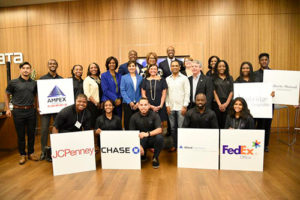J.C. Penney Co., OMNI, Oncor, PepsiCo. and others are supporting the launch of the first recognized urban work program in the country
When Paul Quinn College (PQC) President Michael Sorrell decided to convert the school’s football field into an urban farm, people thought he was crazy. The “WE over ME farm” has since set a national best-practice standard of taking institutional resources, listening to the needs of the community and supporting students — many of whom were suffering from food insecurity while enrolled.

Now the innovative leader has launched an initiative to become the first recognized urban work program in the country, a seal of approval that the Department of Education gave PQC in 2017, becoming the first Historically Black College or University (HBCU) to ever receive the recognition.
The PQC work program is one of a kind, in terms of community and corporate partnership. The model provides a low-cost, structured work program where students learn new skills and receive coaching and evaluation from industry experts. The program requires students to work 10 to 20 hours a week, reducing student tuition by almost $10,000 annually. Employers not only pay students for their work but also help fund tuition. Companies supporting the program include J.C. Penney Co., Oncor, Omni Hotels and PepsiCo. Other designated work colleges have some version of this program, but they lack the industry access that PQC students have in the DFW Region, because other schools are in mostly rural areas. Though PQC is located in southern Dallas, the program has expanded to other areas of the region, including Plano and Frisco, increasing student access and participation in diverse industries while providing growing diverse talent to the companies throughout the DFW Region.
This article is part of the 2020 Higher Education Review Magazine.